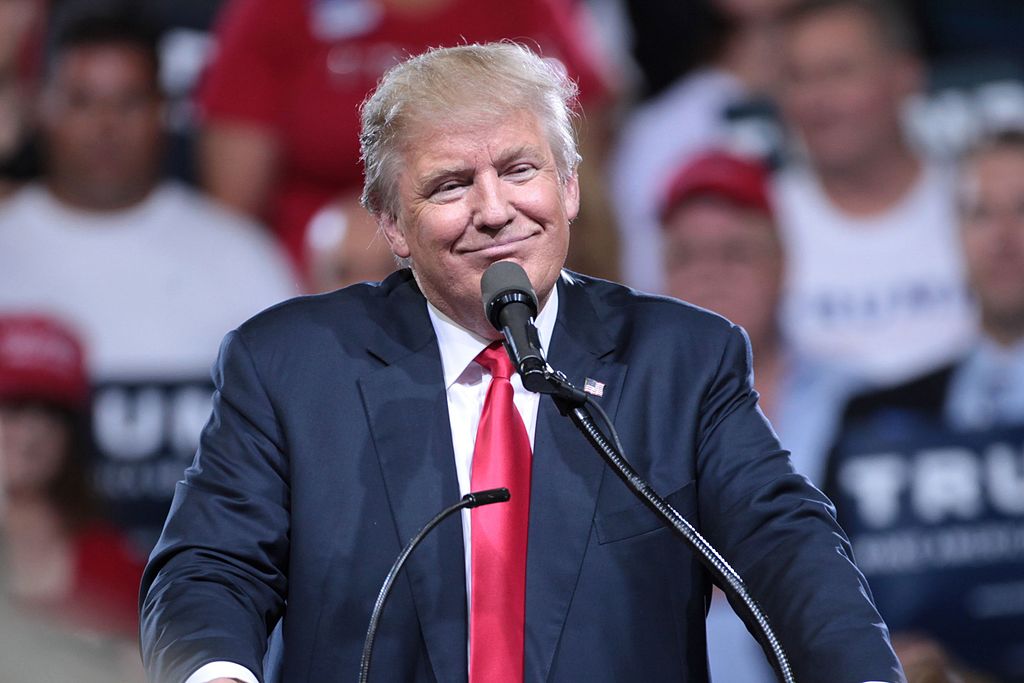In 2025, President Donald Trump has positioned religious freedom as a cornerstone of his administration, igniting debates across the political spectrum. From rolling out initiatives aimed at protecting religious practices to expanding funding for faith-based organizations, Trump’s policies are drawing both praise and criticism. His administration claims the agenda is a defense of constitutional rights, while opponents argue it risks marginalizing other communities.
As a part of his vision, Trump has vowed to strengthen protections for religious institutions, ensure free exercise of faith in workplaces and schools, and restrict federal funding for programs that allegedly undermine religious beliefs. However, critics warn that such measures could create loopholes for discrimination under the guise of religious freedom.
Key Policies Under Trump’s Religious Agenda
A primary focus of Trump’s strategy involves reversing regulations enacted during previous administrations. These reversals include permitting religious institutions to receive federal funding without complying with certain anti-discrimination requirements. Additionally, the administration is advancing policies to safeguard religious speech in public institutions, particularly schools.
Another controversial proposal seeks to broaden “conscience protections” for healthcare providers, allowing them to refuse services like abortions or gender-affirming care based on religious objections. This policy, Trump argues, preserves moral integrity for faith-based practitioners. Critics, however, view it as a barrier to essential care, especially for marginalized groups.
Faith-based organizations are also poised to receive increased government support, with Trump pledging millions in grants to support religious charities. Proponents argue this will empower community-driven solutions to societal issues, while detractors worry it erodes the separation of church and state.
Public Reactions: Praise, Concerns, and Social Media Firestorms
Trump’s religious freedom agenda has polarized public opinion, sparking heated conversations on social media. Supporters see it as a defense of traditional values, while detractors fear it may erode individual rights.
Netizens voiced mixed reactions online:
- @FaithFirstUSA: “Finally, a president who truly values our religious liberties. This is long overdue. #ReligiousFreedom”
- @EqualityMatters: “Trump’s policies are just a cover for legalized discrimination. This is not what America stands for. #CivilRights”
- @FreedomFighter88: “Protecting faith-based values is critical for the country’s moral foundation. Thank you, Mr. President! #StandForFaith”
- @LGBTQVoices: “Conscience protections? More like excuses for bigotry. This agenda is a step backward for equality. #Resist”
- @MiddleRoadJoe: “I support religious freedom, but not at the expense of healthcare and other essential rights. #BalancedApproach”
- @CommunityHope: “Increased funding for faith-based groups is great news. These organizations do vital work. #SupportFaith”
Critics Warn of Potential Overreach
While Trump’s supporters praise his bold stance on religious liberty, legal experts and civil rights advocates express concerns. They argue that broadening religious exemptions could set a precedent for undermining anti-discrimination laws, especially regarding LGBTQ+ rights.
Elizabeth Foster, a constitutional law professor, stated, “Religious freedom is a vital right, but policies must balance the rights of all citizens. Without careful oversight, these measures could create legal chaos.”
As the Trump administration rolls out its initiatives, watchdog groups and advocacy organizations are closely monitoring their implementation. The debate underscores a deep divide in how Americans perceive the intersection of faith, governance, and personal rights.



 Failure of US-Iran talks was all-too predictable – but Trump could still have stuck with diplomacy over strikes
Failure of US-Iran talks was all-too predictable – but Trump could still have stuck with diplomacy over strikes  Russia Signals Openness to U.S. Security Guarantees for Ukraine at Geneva Peace Talks
Russia Signals Openness to U.S. Security Guarantees for Ukraine at Geneva Peace Talks  Trump Warns Iran as Gulf Conflict Disrupts Oil Markets and Global Trade
Trump Warns Iran as Gulf Conflict Disrupts Oil Markets and Global Trade  Zelenskiy Urges Change in Iran After U.S. and Israeli Strikes, Cites Drone Support for Russia
Zelenskiy Urges Change in Iran After U.S. and Israeli Strikes, Cites Drone Support for Russia  Iran Detains U.S. Citizens Amid Escalating Conflict With the United States and Israel
Iran Detains U.S. Citizens Amid Escalating Conflict With the United States and Israel  Rubio Says U.S. Would Not Target School After Deadly Iran Strike Reports
Rubio Says U.S. Would Not Target School After Deadly Iran Strike Reports  Suspected Drone Strike Hits RAF Akrotiri Base in Cyprus, Causing Limited Damage
Suspected Drone Strike Hits RAF Akrotiri Base in Cyprus, Causing Limited Damage  Middle East Conflict Escalates After Khamenei’s Death as U.S., Israel and Iran Exchange Strikes
Middle East Conflict Escalates After Khamenei’s Death as U.S., Israel and Iran Exchange Strikes  Trump Launches Operation Epic Fury: U.S. Strikes on Iran Mark High-Risk Shift in Middle East
Trump Launches Operation Epic Fury: U.S. Strikes on Iran Mark High-Risk Shift in Middle East  Argentina Tax Reform 2026: President Javier Milei Pushes Lower Taxes and Structural Changes
Argentina Tax Reform 2026: President Javier Milei Pushes Lower Taxes and Structural Changes  U.S. Deploys Tomahawks, B-2 Bombers, F-35 Jets and AI Tools in Operation Epic Fury Against Iran
U.S. Deploys Tomahawks, B-2 Bombers, F-35 Jets and AI Tools in Operation Epic Fury Against Iran  U.S.-Israel War on Iran Escalates as Gulf Conflict Disrupts Oil, Air Travel and Regional Security
U.S.-Israel War on Iran Escalates as Gulf Conflict Disrupts Oil, Air Travel and Regional Security  Trump Announces U.S. Strikes on Iran Navy as Conflict Escalates
Trump Announces U.S. Strikes on Iran Navy as Conflict Escalates  Pentagon Downplays ‘Endless War’ Fears After U.S. Strikes on Iran Escalate Conflict
Pentagon Downplays ‘Endless War’ Fears After U.S. Strikes on Iran Escalate Conflict  Australia Rules Out Military Involvement in Iran Conflict as Middle East Tensions Escalate
Australia Rules Out Military Involvement in Iran Conflict as Middle East Tensions Escalate  Trump Says U.S. Combat Operations in Iran Will Continue Until Objectives Are Met
Trump Says U.S. Combat Operations in Iran Will Continue Until Objectives Are Met  AI is already creeping into election campaigns. NZ’s rules aren’t ready
AI is already creeping into election campaigns. NZ’s rules aren’t ready 
































